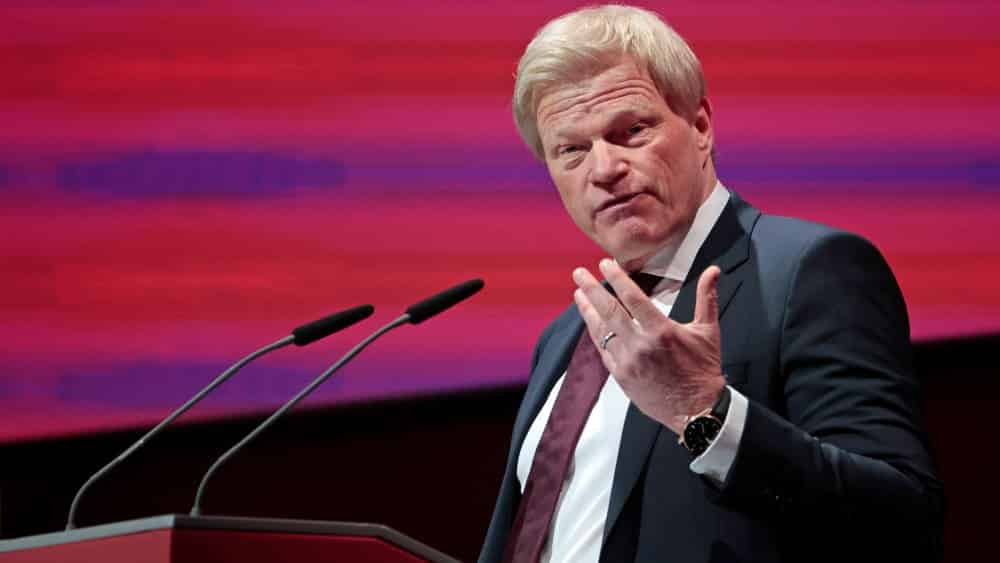Oliver Kahn, Chairman of the Board of FC Bayern München AG, has spoken out in favour of a salary cap in football and curbing the exploding transfer fees. He once again defended the controversial sponsorship by Qatar Airways.
The controversies at FC Bayern’s annual general meeting at the end of November still preoccupy the Bayern bosses today. Instead of being able to rejoice over one of the most successful years in the club’s history, there were heated discussions about relations with the upcoming World Cup host Qatar. FC Bayern is economically linked to Qatar through a sponsorship agreement with the state-owned airline “Qatar Airways”. A member motion to vote on this partnership because of the lack of respect for human rights in the emirate on the Gulf was not approved. And in the end led to quarrels and discord.
“The more time has passed since then, the more it bothers me that the perception of the evening has turned into a meeting with a single agenda item,” Kahn admitted in an interview with the “Süddeutsche Zeitung” (Friday edition). Kahn reiterated that FC Bayern would stick to the contract, which runs until 2023: “We will fulfil it,” he said, “and in the meantime we will closely observe how things develop. Based on these developments, FC Bayern will “then decide how to proceed. “
Kahn: “It can’t be a solution to exclude or not to have a dialogue either.
According to Kahn, “economic criteria” will also play a major role in answering the question about the future of the cooperation: “Of course the contract with Qatar Airways is lucrative,” said Kahn. “But that doesn’t mean that we haven’t and won’t also look at it from other aspects.” In the process, he said, the Bayern bosses are also aware that “in Qatar, many things are certainly not as people imagine by our standards.” But what, Kahn asked, were the alternatives? “It can’t be a solution either to exclude or not to have a dialogue,” the 52-year-old said.
Kahn: “There must be punishments that hurt and are really enforced “
For Kahn, doing without backers a priori is also no solution. “There are very sensible investors who also have an interest in ensuring that salaries don’t go through the roof. That makes their investment more predictable,” he said. Especially since investors at the international level are necessary to remain competitive: “A few years ago, the English were ahead of us by ten, 20 million euros. Now it’s many times that,” he said. To prevent this gap from widening, Kahn pleads for “cost control” in football. “We want to see a containment of salaries, and it would also be desirable if prices on the transfer market were to fall.” In doing so, Kahn argues for a salary cap as well as clear limits for investors “on how much they can put into a football club, how much loss they can make up.” Both points, Kahn is aware, will not work without strong enforcement potential: “There have to be penalties that hurt and are really enforced, even at the big clubs. “





